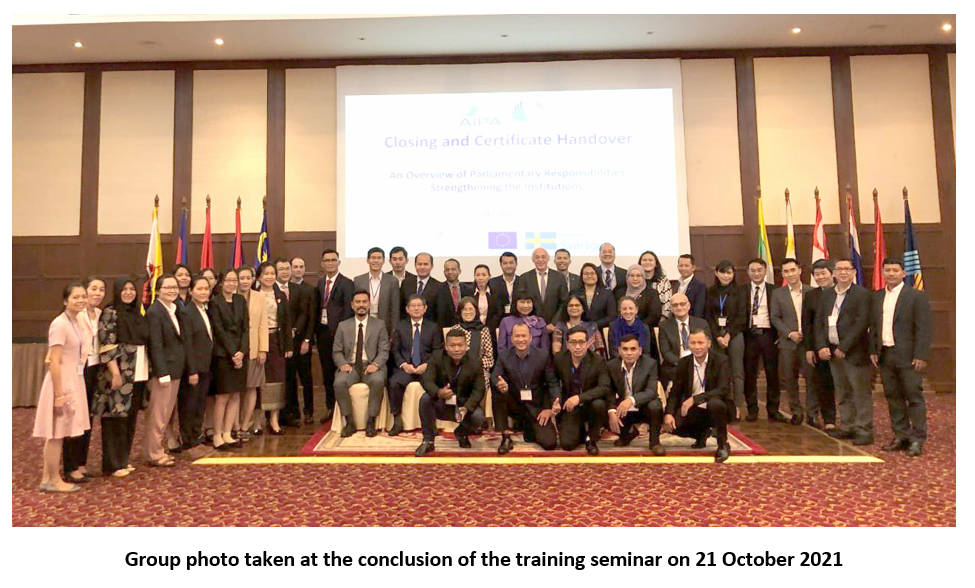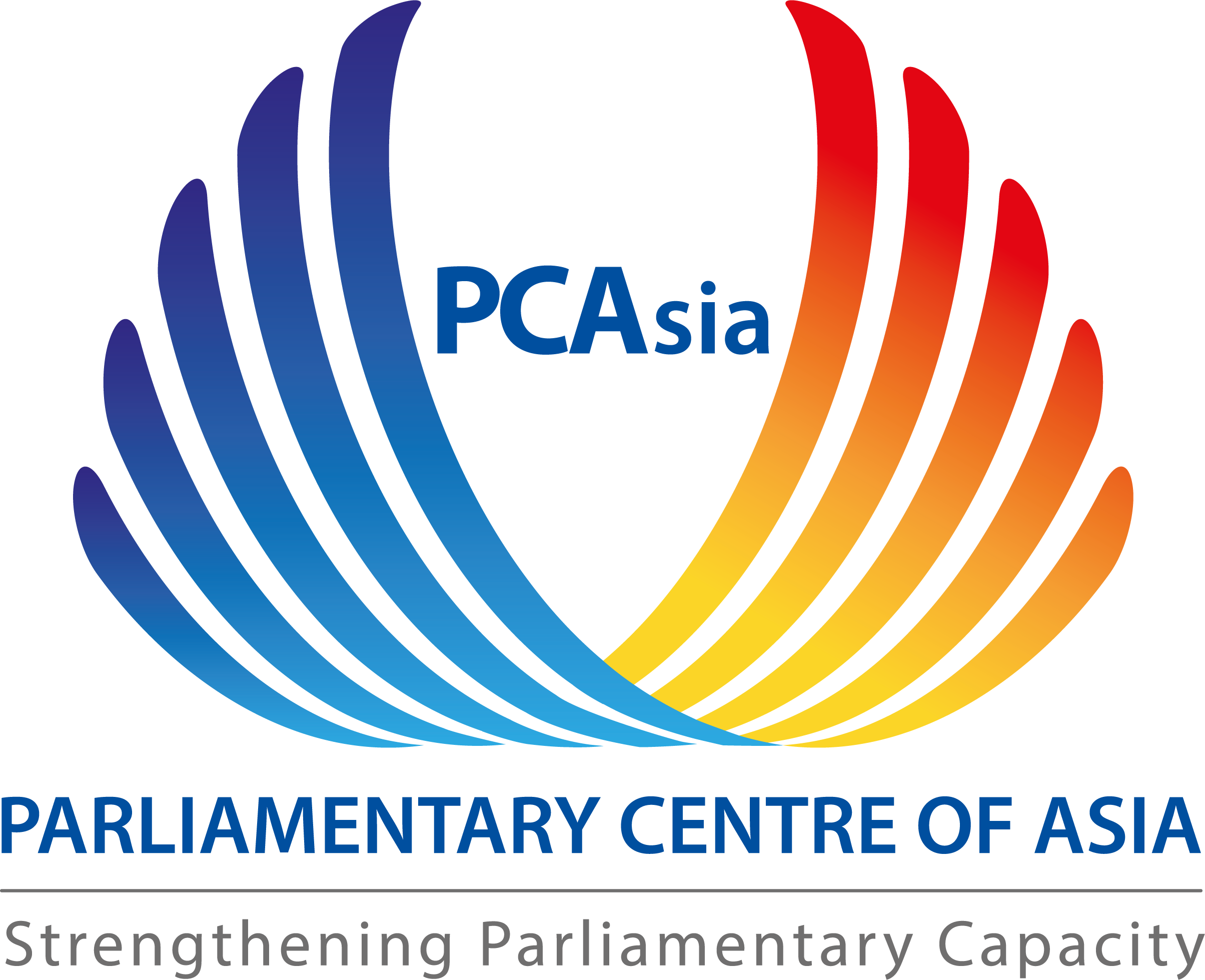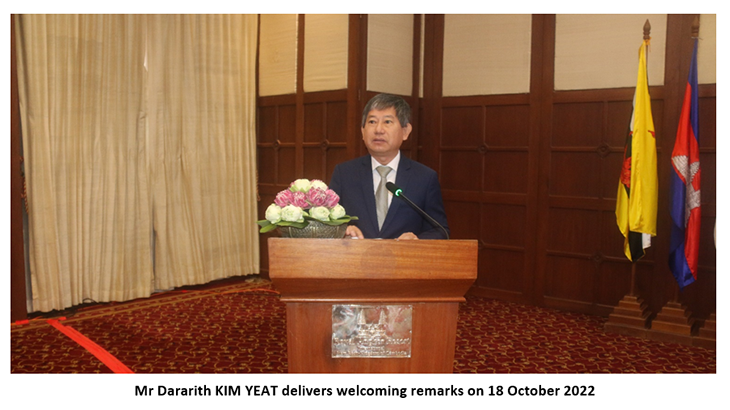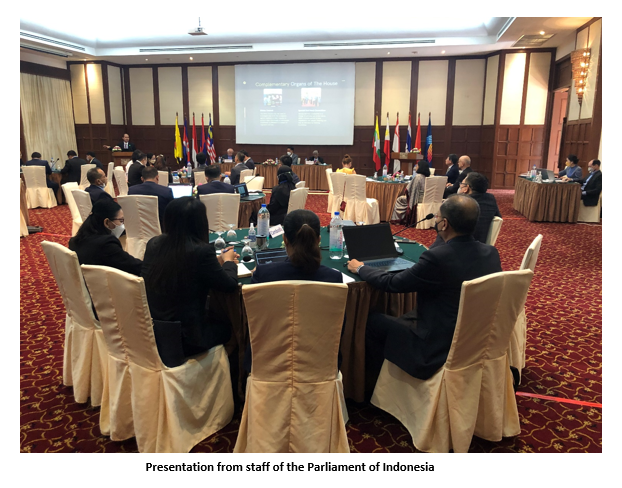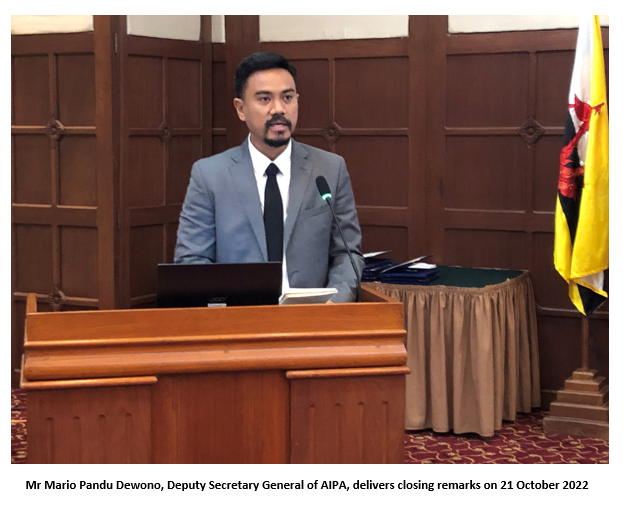After four days of experience sharing among participants, the Training Seminar on Parliamentary Responsibilities concluded on Friday, 21 October 2022. During the sixth in PCAsia’s series of these seminars, parliamentary staff, resource persons and distinguished guests met to engage in discussions on the practices of their respective Parliaments.
Mr Dararith KIM YEAT, PCAsia Executive Director, kicked off the event by welcoming those joining from the Parliaments of Vietnam, Thailand, the Philippines, Malaysia, Lao PDR, Indonesia, and Cambodia, from King Prajadhipok’s Institute (KPI) and the ASEAN Inter-parliamentary Assembly (AIPA) Secretariat, and those from farther afield, including elsewhere in Asia, Europe and North America. In his opening remarks, he encouraged them to compare the different approaches of their respective parliaments in order to contribute to the development of a body of knowledge in parliamentary affairs and practice, particularly in the ASEAN region.
The week began with a comparison of the traditions and mechanisms upon which the procedures of each of the participating parliaments are based and the fundamental role that legislatures play in democratic systems. Discussion touched on the ways that parliaments at the provincial level, the national level, and the supra-national level can evolve within different constitutional structures, and in response to the changing needs of the people and demands of a changing world. Also discussed was the work of Parliaments in different political systems – including parliamentary systems, presidential systems, and mixed systems – along with the varied approaches to organise the separation of powers.
Mr P.O. Ram, former Secretary General of the AIPA Secretariat, Mr Xavier NUTTIN, Senior Associate and Advisory Board Member of the European Institute (EIAS), and Vice-Chair of PCAsia BoD, and Mr Mario Pandu Dewono, Deputy Secretary General of the AIPA Secretariat, each moderated discussions on the core functions that Parliaments share in common, namely the representation, legislation, and oversight functions, as well as the relatively new function of Parliamentary Diplomacy. Expert contributions were made by esteemed representatives from the Secretariats of the French Senate and National Assembly, the Rajya Subha of the Parliament of India, the Legislative Assembly of Ontario, the European Parliament and the Swedish Parliament.
For the legislative function, participants discussed the tools and processes used in the different Parliaments, and about the application of principles such as compromise, majority vote, qualified majority, and consensus, and the ways that laws can be introduced for each Parliament. Despite the differences in structures and practices, a common ground was the role that parliamentary staff play in providing fact-based information to support the law-making process. There was discussion about the rapid expansion of the organisational structure of the Secretariat of the National Assembly of Lao PDR, and interest in the procedures used in the Philippines which include a check of foreign laws, which can have the added benefit of aiding in the overall harmonisation of laws in ASEAN, an important step towards regional integration.
On the function of representation, attendees learned about the different ways that Parliamentary Members are elected to each Parliament and Chamber. One point of interest raised were the strategies that Parliaments are taking in response to the wishes of constituents for increased information and greater access into parliamentary processes. There were examples of the petitions used in France, India and the European Parliament. Other approaches mentioned were ways of facilitating transparent communication between Parliaments and citizens, such as parliamentary TV, and online methods for information sharing and the reception of complaints, like the DPR NOW app in Indonesia. These, together with more traditional methods of engagement with citizens such as public consultations, serve to increase trust while contributing towards good governance.
On the topic of parliamentary oversight, participants heard insights from, among others, the Parliament of Cambodia, who through the Budget Research Department supports MPs to perform oversight through hearings, and through Reports that include the important dimension of gender budgeting. Another example was how the PBO in Sweden handles requests, how its work strengthens the effectiveness of parliamentary oversight, and contributes to a more fact-based political debate.
The final topic of discussion was the expanding diplomatic role of Parliaments, in a world where more and more decisions are being made by unelected regional and international bodies. Seminar participants explored ways to make these processes more democratic, including through the strengthening of parliamentary capacity and their networking with one another in inter-parliamentary bodies such as friendship groups, inter-parliamentary assemblies, and others. There was also mention of the AIPA-EP Inter-Regional Parliamentary Dialogue from 2021, and the forthcoming European Parliament Liaison Office in ASEAN, both of which can play an important role in furthering parliamentary cooperation between the regions.
During the seminar’s closing remarks, Mr Mario Pandu Dewono thanked all participants for their contributions and fruitful exchange of ideas and good practices, while sharing his special appreciation for the attendance of AIPA Secretary General, H.E. Ms Nguyen Tuong Van, the Secretary General of The Senate of the Kingdom of Thailand H.E. Ms Napaporn Jaisujja, H.E. Mrs La-Or Putornjai from the PCAsia Board of Directors, and representatives from the Swiss Agency for Development and Cooperation (SDC), who along with the Swedish International Development Cooperation Agency (Sida) and the EU, provided funding for the training seminar.
